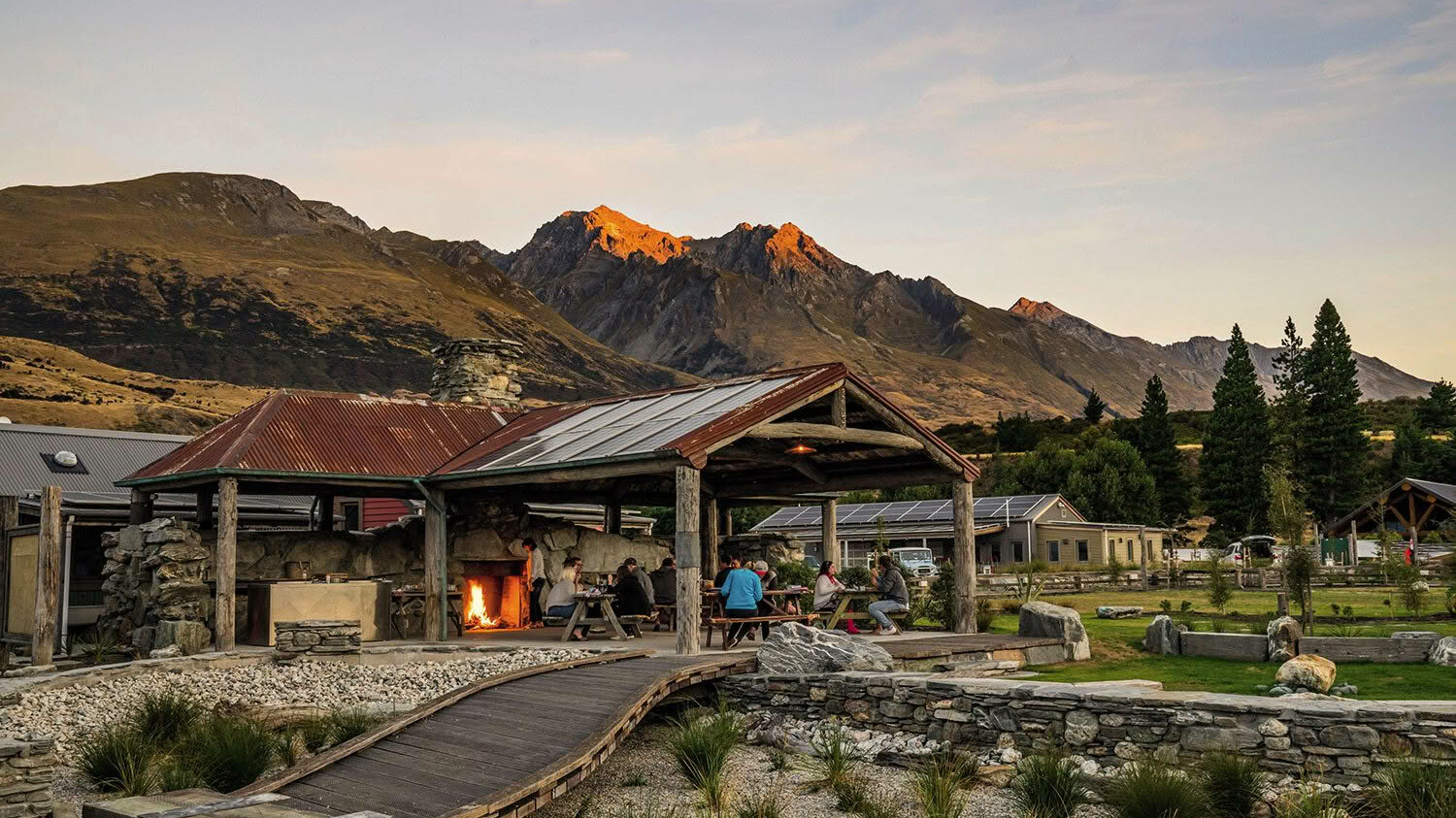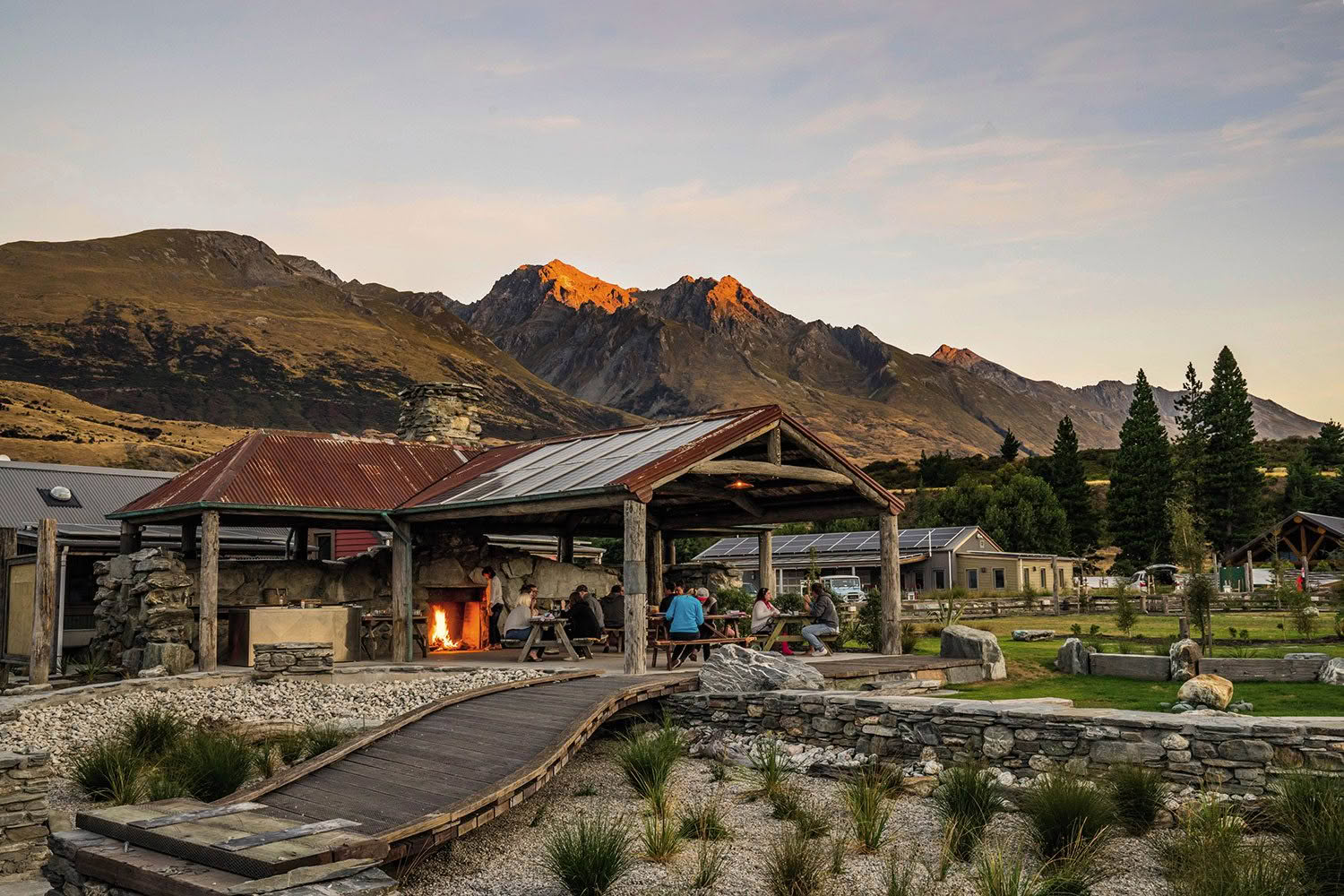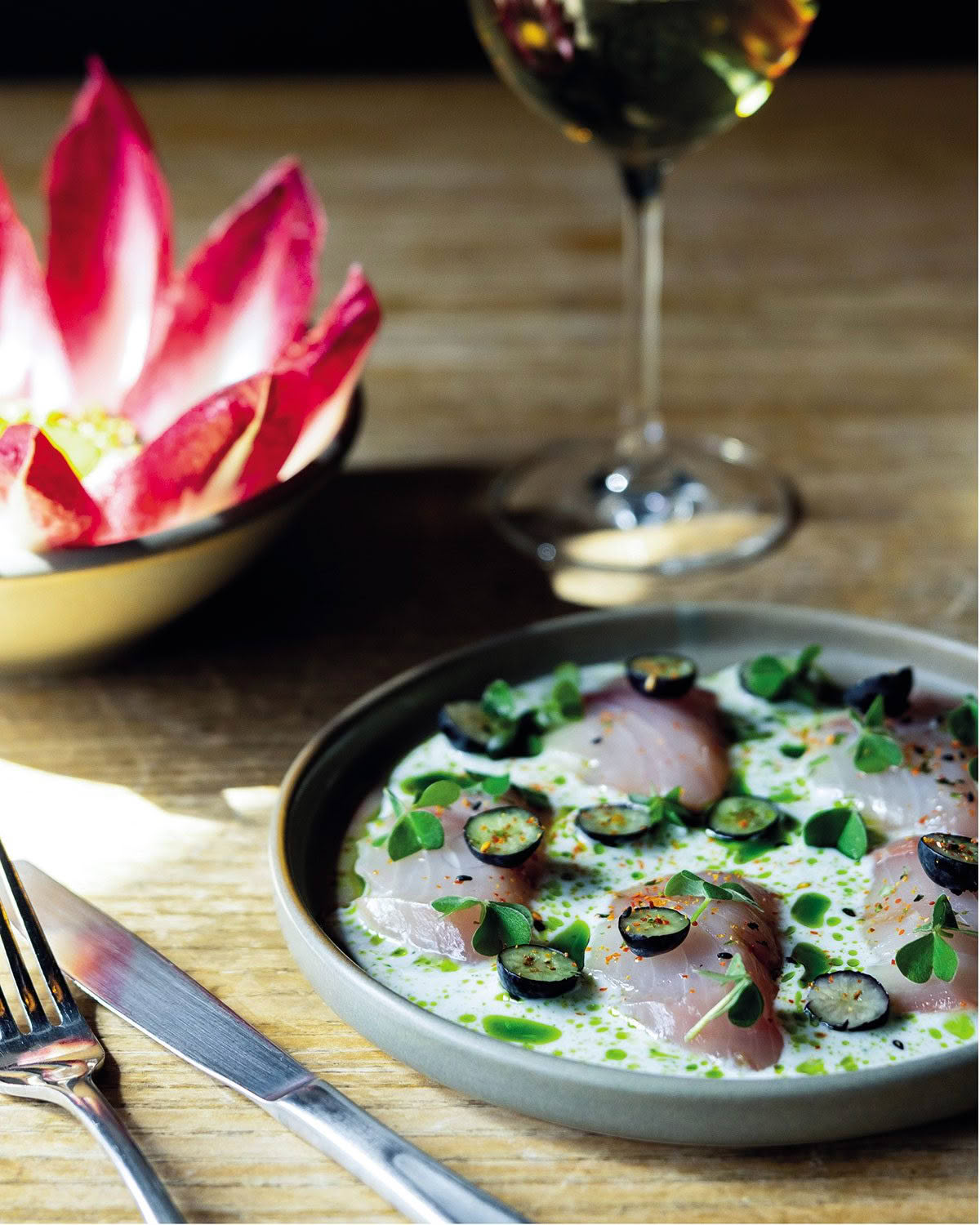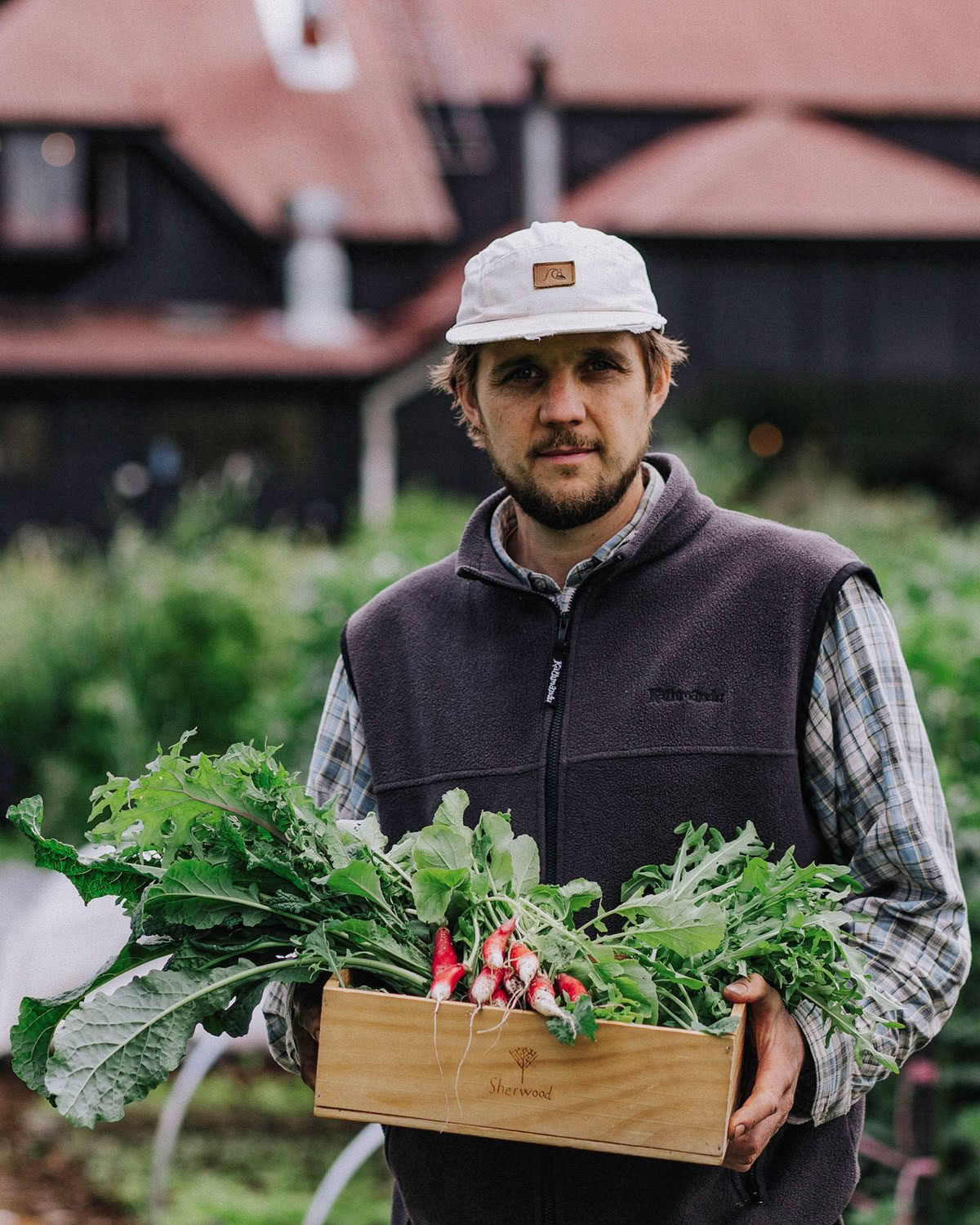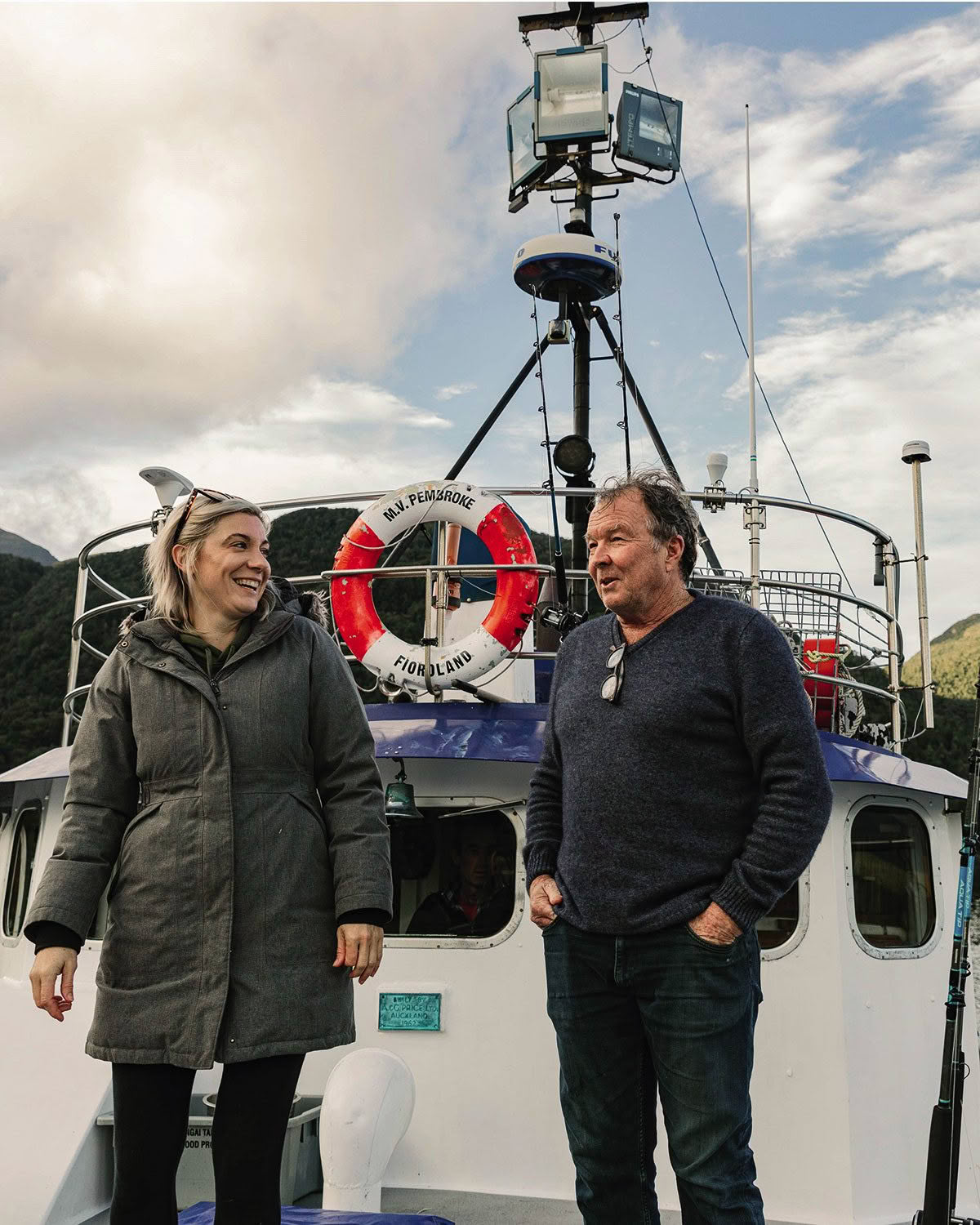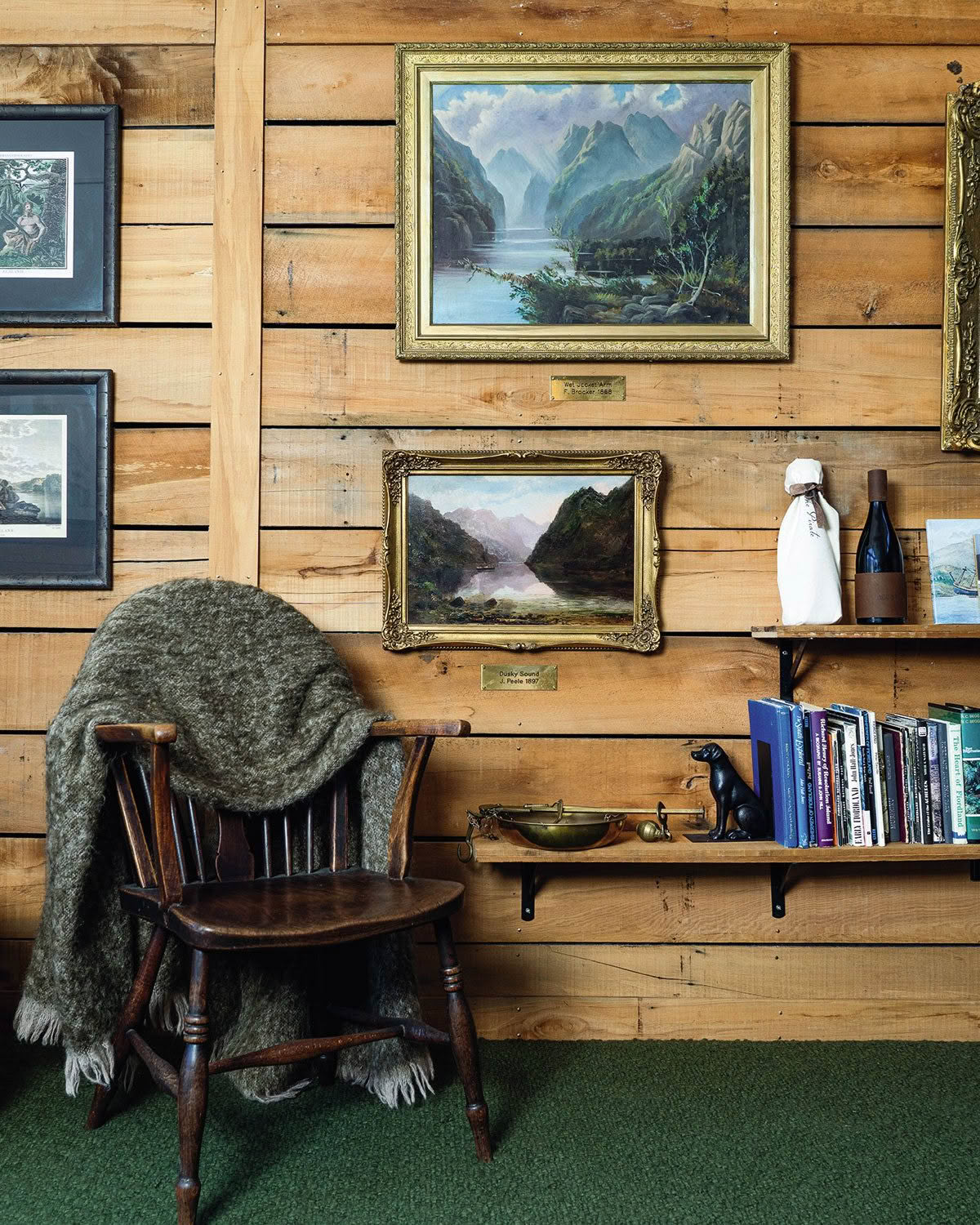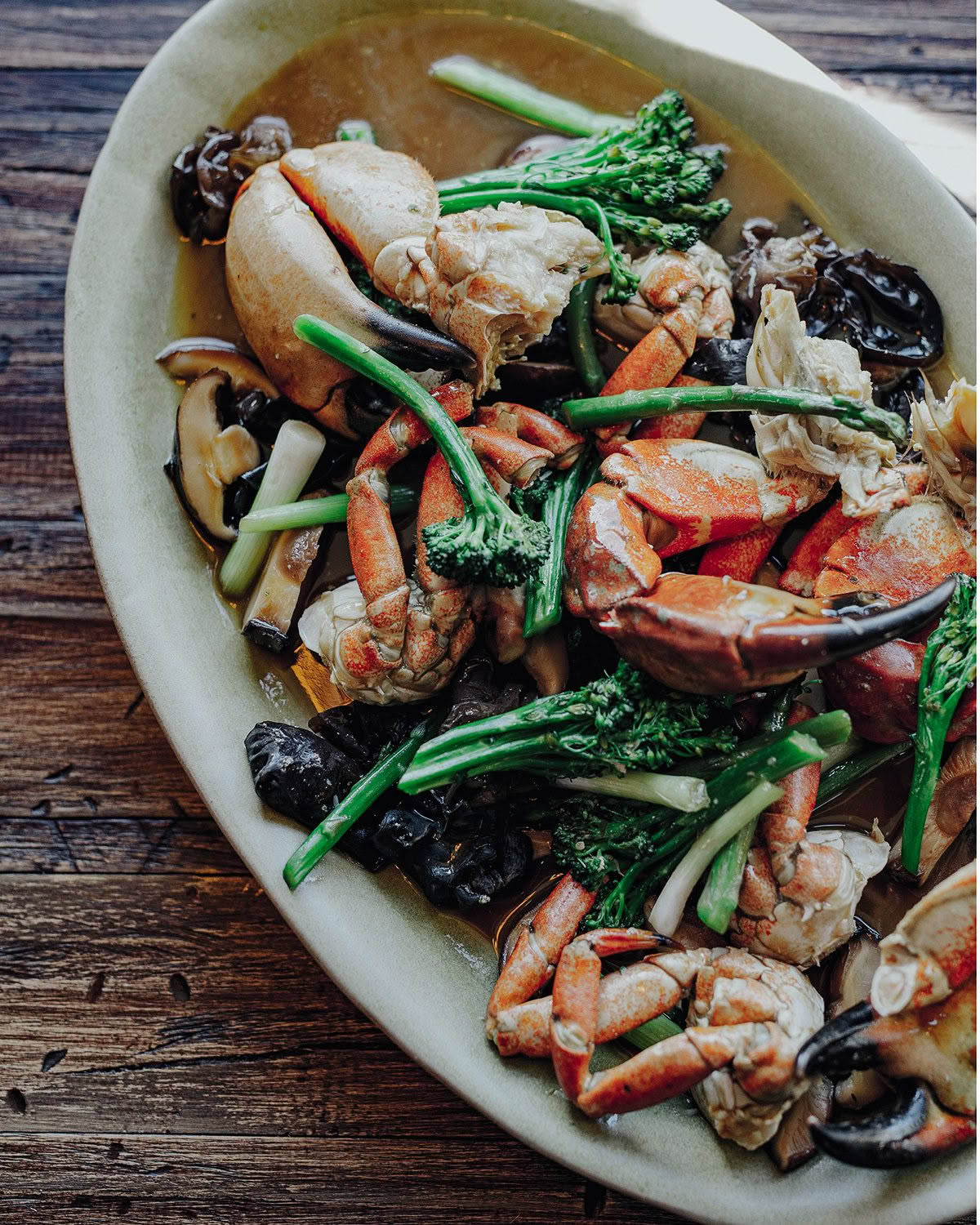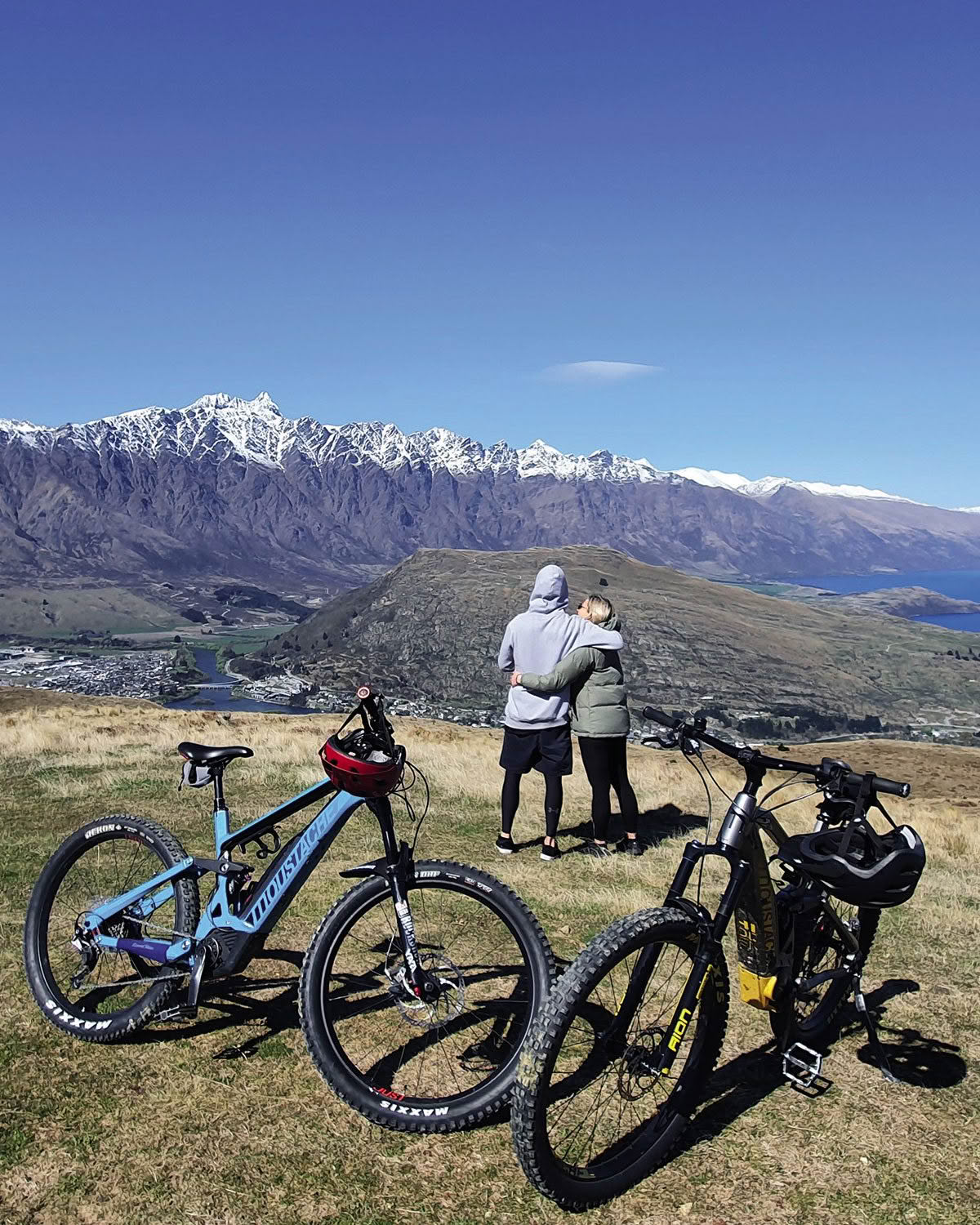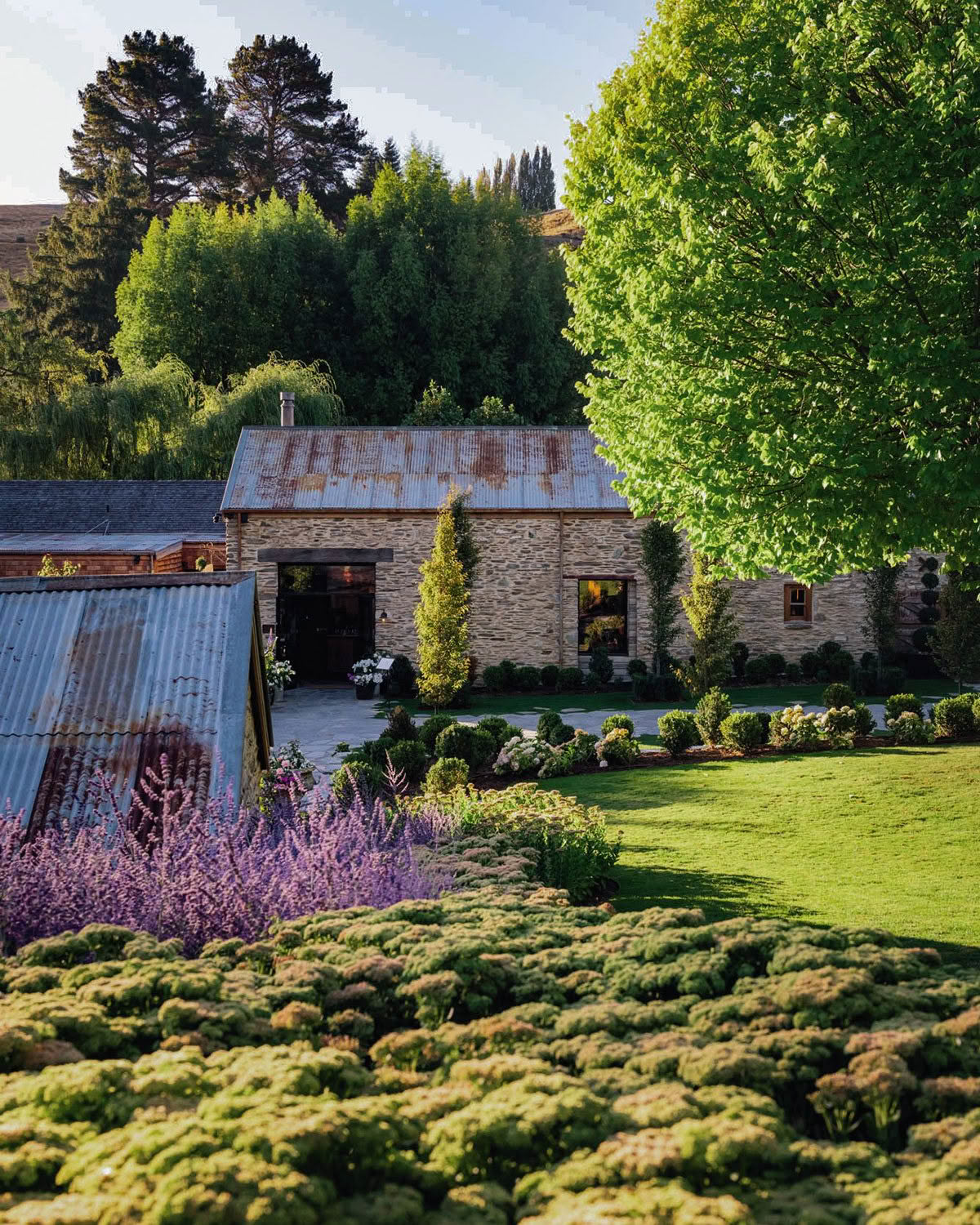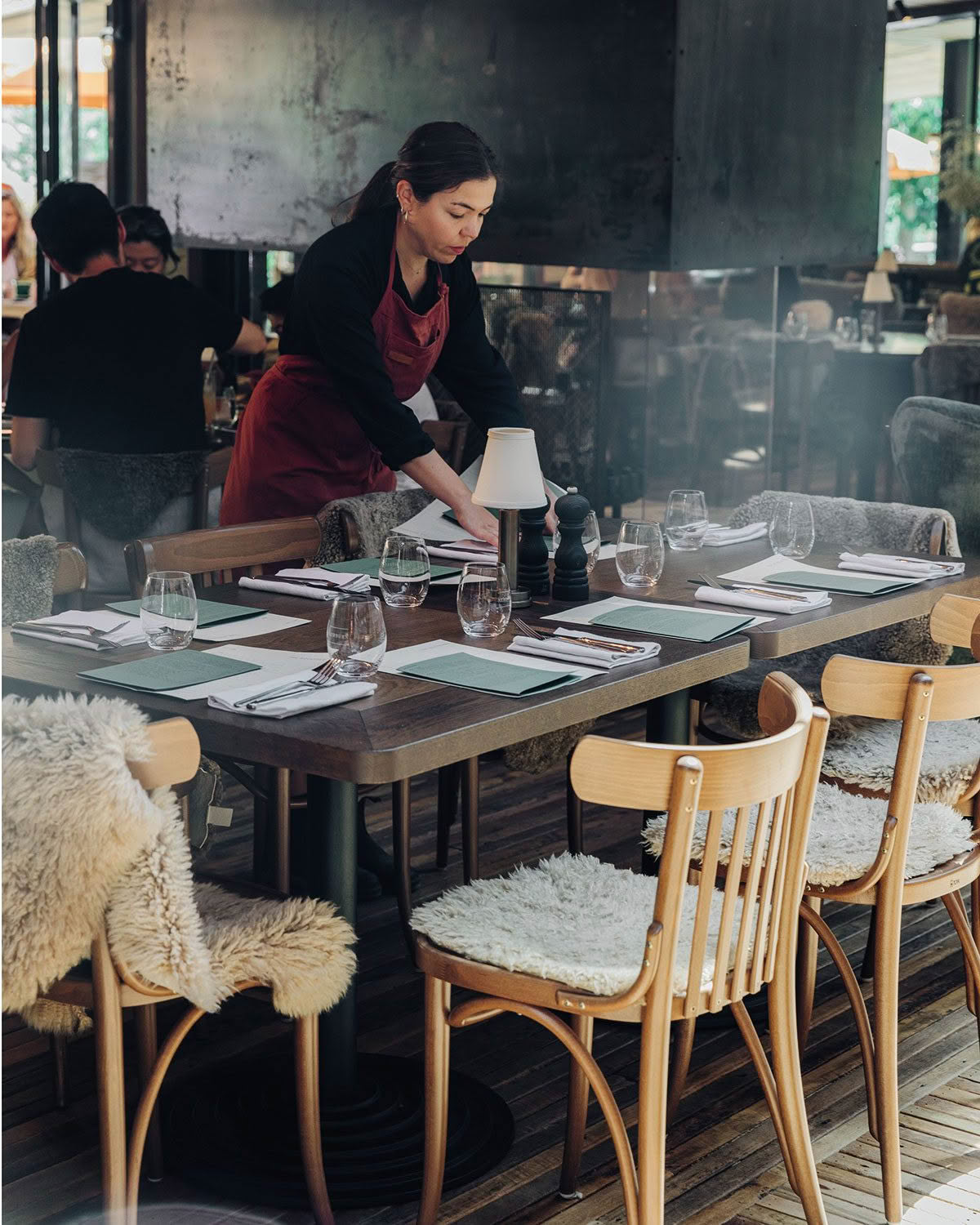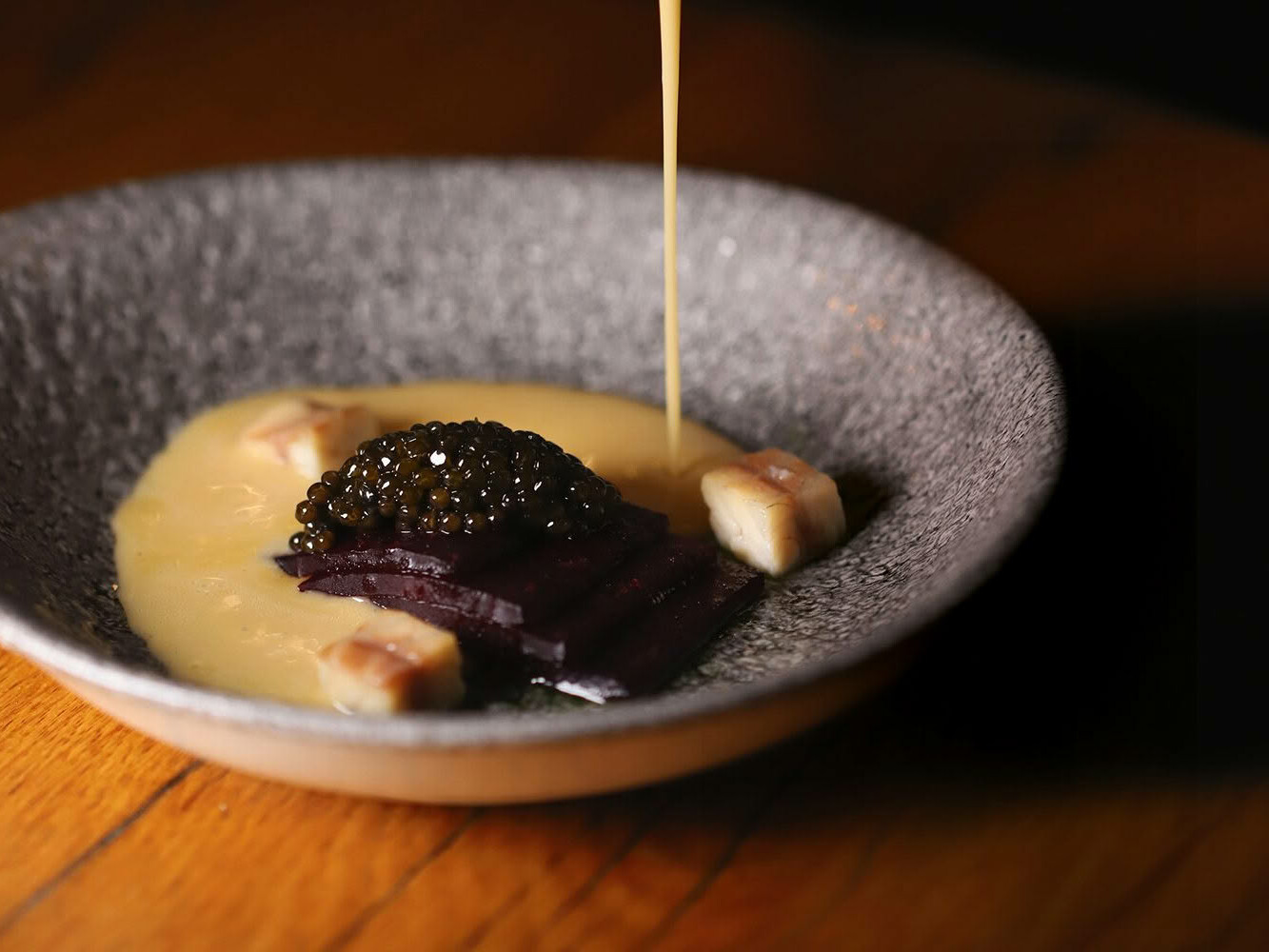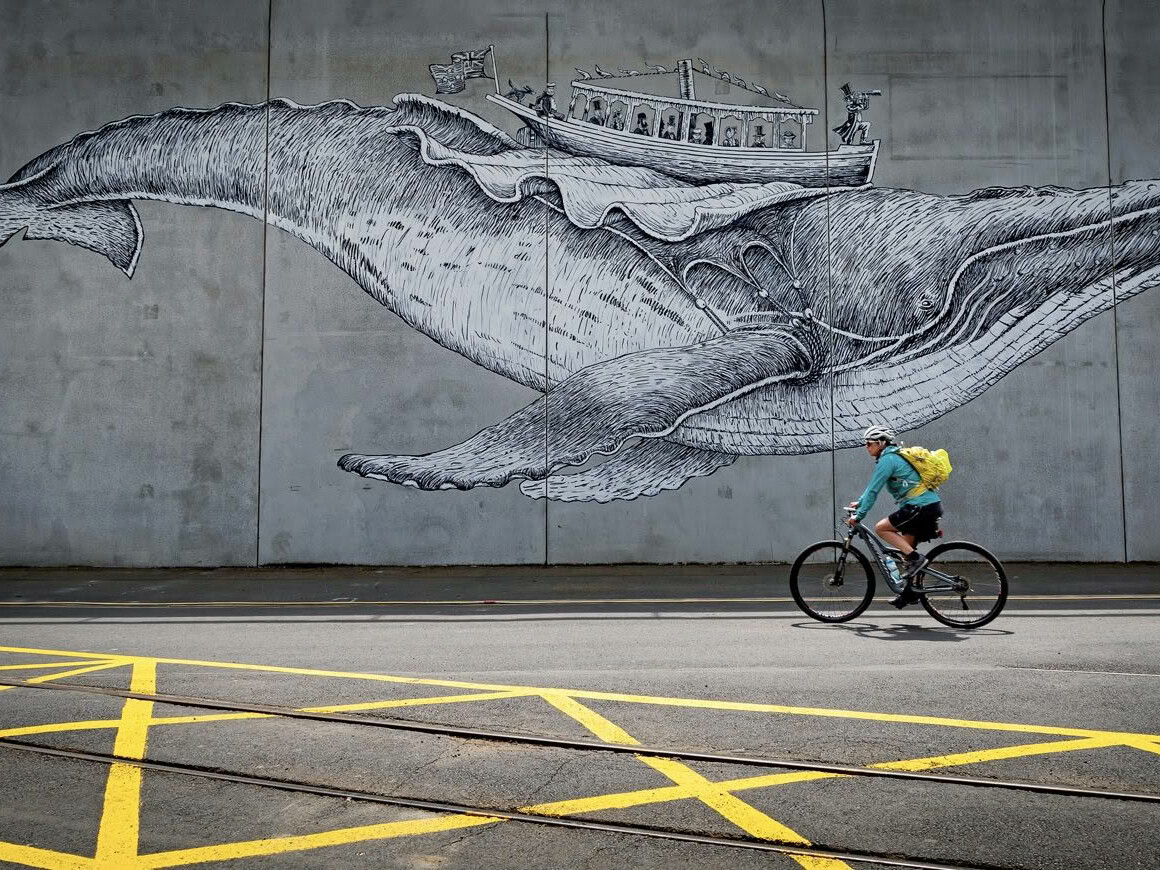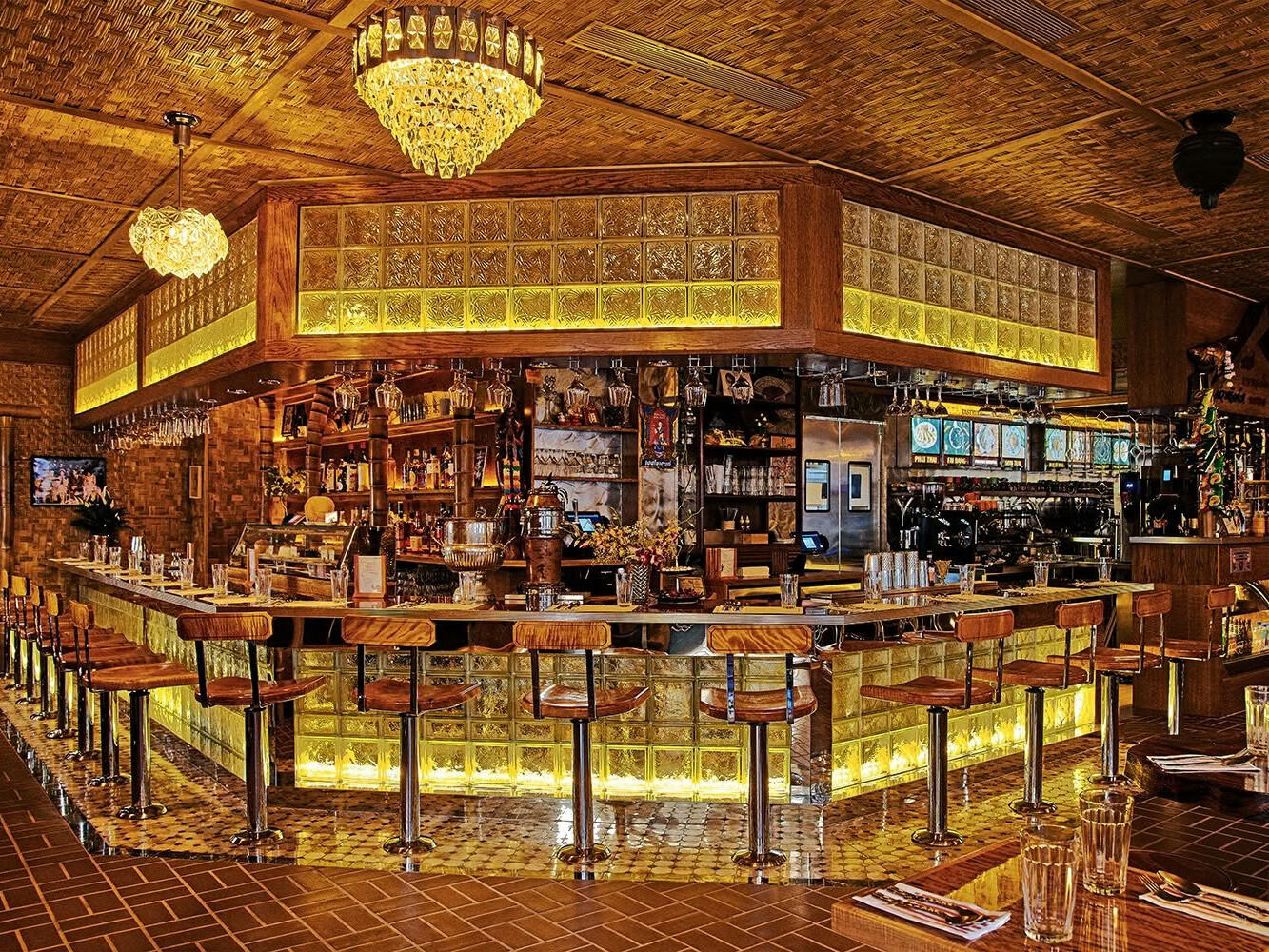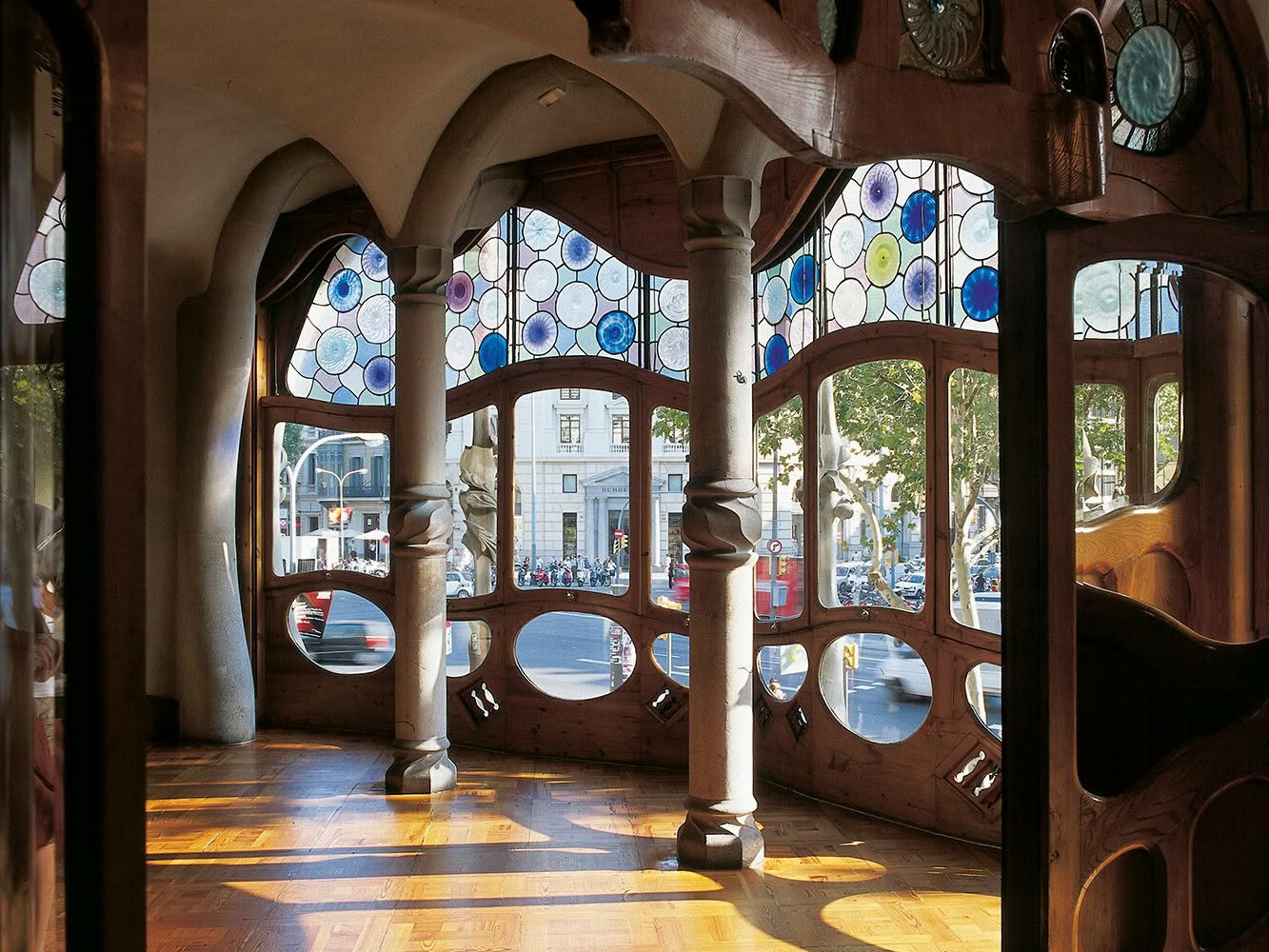When someone mentions Queenstown, it’s hard to stop your mind conjuring up images of jet boating, bungy jumping, skiing, flashy restaurants and fancy cocktails. This resort town has long been associated with fast, good times. But there’s another side to Aotearoa New Zealand’s adventure capital which we’ve seen more of in recent years, a side with a more languid pace where people stop to truly appreciate the breathtaking scenery, connect with the land and its bounty, and consider their impact on the planet. This is in no small part due to an ambitious Destination Management plan which has set a target for a carbon-zero visitor economy by 2030 as well as working consistently and doggedly towards a properly regenerative tourism future that will improve local and visitor wellbeing, forge connections between people and place, and enable healthy ecosystems.
But what does this have to do with food and wine? Well, plenty – it means a growing movement towards eating like granny used to (well, maybe a well-travelled granny with adventurous tastes rather than one who boils the broccoli for two hours). Fresh produce from kitchen gardens, sustainable processes, waste minimisation, eating seasonally and reducing the use of processed ingredients are all part of the picture.
I was lucky enough to take a three-day tour of some hospitality operations working hard towards this future – in an electric car, of course (the EV Polestar, which is particularly fabulous due to its use of recycled materials: the body, subframe, brake parts and seats are made of recycled steel from post-consumer and post-industrial waste; carpets are manufactured from discarded fishing nets and other plastic waste – and so much more).
Here are some of my tour highlights:
LUNCH AT THE SHERWOOD
Anyone interested in good food would no doubt already see the Sherwood as a mandatory stop on any Queenstown itinerary. The food and service are exceptional and deserving of a Cuisine Good Food Guide two- hat status but learn more about the backstory and commitment to the planet and you’ll fall deeper in love.
In winter, a fantastic kitchen garden that looks out over the Remarkables and Lake Wakatipu (a clear contender for best view from a kitchen garden in New Zealand) is lush with leafy kale, Brussels sprouts, cauliflower, vibrant rainbow chard, carrots and beetroot. The team has also recently started work on a much larger garden further up Coronet Peak. “It’s incredible using fresh produce picked just metres from the kitchen,” says super-talented executive chef, Chris Scott. “And it’s great for our chefs to learn to get creative with something we have a lot of – and how to use all the parts of the fruits and vegetables, rather than waste perfectly edible food. Of course, we still have to buy food in, but we try to keep it as local as possible and limit it to the South Island.”
And it’s not just in the kitchen that the innovation happens: the bar staff love poking around in the garden and further afield to create clever foraged concoctions. A stunning twist on a gin sour is made with Rifters Gin from Arrowtown, elderberries picked personally by bar manager Carolina Front in Dalefield, paired with pineapple sage fresh from the garden. “The wine list is all from New Zealand and either natural, low- intervention, organic, bio-dynamic or all of the above,” she says. Mini bars in the rooms have been replaced with a ‘refillery’ where guests are encouraged to bring the provided bottles into the restaurant and have them filled with local wine or beer to enjoy back in their rooms.
And that’s not the only regenerative element you’ll see if you stay at the accommodation. The thick, warm curtains are beautifully sewn ex-army blankets, the lino is made from recycled tyres (you’d never know) and there’s a compost scrap bin on the bench. It’s so good to know that one of New Zealand’s best dining experiences also has a sustainable, planet-loving heart. sherwoodqueenstown.nz
LINGER LONGER AT WET JACKET WINES
Part of regenerative tourism is about slowing down and taking time to enjoy people and place, rather than frantically ticking off a must do-list. And to be fair, it’s pretty much impossible to feel stressed tasting wine at Wet Jacket’s cellar door right on the lake (literally, the pier is technically floating, but not in a queasy kind of way). While the extremely passionate Ali Caird, general manager, took us through a tasting of the highlights of the Wet Jacket and Putangi collections, the view of gently rolling water and the ranges in the background made us wonder how the concepts of ‘busyness’ and stress could even exist.
Obviously, the wine is excellent, given Greg Hay’s previous experience with Chard Farm and Peregrine (and planting an extraordinary amount of the total vines all over Central Otago), but it’s his love of nature and conservation that makes this wine experience extra special. The name Wet Jacket comes from one of his favourite places – Wet Jacket Arm (Moana Uta) in Fiordland where he has spent a serious amount of time over the last two decades. Greg is a passionate conservationist who has formed a strong connection to projects that ensure the survival of Aotearoa’s most endangered native and endemic birds, working with Wingspan Trust, DOC and Fiordland Conservation Trust. This includes a partnership with RealNZ. “Close to $50k has been raised by Real NZ and Wet Jacket for their unique conservation projects,” says Ali. “This is made up of tasting-fee contributions at our cellar door as well as the sale of Putangi wines onboard the RealNZ boats and at Walter Peak.” wetjacket.nz
HEAD STRAIGHT TO HEADWATERS
Dine at The Headwaters Eco Lodge in take-your-breath-away Glenorchy and you’ll be pretty delighted to learn you’re being fed by food legend Peter Gawron (you can book in as a non-guest if they aren’t full with hotel occupants that night). Perhaps best known for his restaurant, Saffron, an Arrowtown favourite for 17 years, Peter’s ability to combine flavours is phenomenal. And the best thing is that there’s a Chef’s Choice menu only (albeit dietary requirements are catered to) – a pared- back offering that helps enormously in terms of minimising waste. It also means you’ll have no decisions to make. Just sit there, relax and wait for the thoughtful, skillfully prepared super- fresh dishes to arrive. Even though you’re seated at your own table, the lodge-style dining somehow encourages chat and connection between different groups. It’s an incredibly relaxing experience that entices you to stay far longer than you planned, allowing the stress of modern life to loosen its grip temporarily.
Headwaters is an extraordinary property. Founded by philanthropists Debbi and Paul Brainerd, who made their fortune in the early days of desktop publishing, it sets the gold standard for sustainability as the first and only accommodation destination to be accredited as a Living Building globally. The net-positive-energy lodge is powered by a ‘solar garden’ as well as panels on the roof surfaces. Composting toilets throughout the property save around 400,000 litres of water annually and all scraps from the kitchen go into a high- tech rapid composter that is also used for the wider Glenorchy community, diverting tons and tons of organic waste.
A state-of-the-art greenhouse means the kitchen can grow heat-loving lemongrass, ginger and turmeric rather than bringing them in from elsewhere. The glasshouse is angled to maximise the sun’s heat and sunk into the ground, so it releases heat overnight. Triple polycarbonate panels are extra thick for thermal efficiency and a pellet fire heats the space over winter. It collects its own stormwater from the roof, which is stored in a 9000-litre tank for irrigation.
All profits from the operation go to the Glenorchy Community Trust which is led by the residents of the settlement, who decide where funds will be invested for the good of the community. theheadwatersecolodge.com
RIDE TO THE SKY
If you fancy a little exercise with your eating and drinking, there’s no better way to do it than with the incredible team from Ride to the Sky. Rather than taking a car, get on yer e-bike and experience the drama of the Central Otago landscape from a planet-friendly perspective. Their four- to five-hour Ride to the Vines takes in the wildest scenery (keep your eyes on the path as the turquoise hues of the Kawarau Gorge try to seduce and distract you) and you can even stop to feed goats and alpacas.
Once you’ve earned your wine, it’s off to Brennan Winery where there’s always something new and interesting to taste – not just pinot! The tempranillo is stunning – you’ll get that after 20 years of trial and error – their orange wines are fun and the Trio (a gewurz/riesling/ muscat blend) is a consistent bestseller that was the result of a happy accident experimenting with grapes that were left after a spring frost wiped out most of the crop. There’s clearly merit in making the best of what you’ve got.
The other winery you’ll visit on the pedal is Mt Rosa where you’ll rest your weary bones over a tasting and beautiful grazing platter with a view of the mountains. They are certified sustainable under the Sustainable Winegrowing New Zealand programme and, along with wines, also produce mulled wine and sangria mixes. You’ll struggle to drag yourself away from this serene spot at the end of your ride. ridetothesky.co.nz
WE ALL STAND TOGETHER
Love Queenstown is a community fund where visitors can donate to a more sustainable future for the destination. All funds are allocated to not-for-profits and charities helping with environmental initiatives in the climate, conservation and biodiversity space. This organisation will also soon highlight ways for tourists to get involved with hands-on volunteer opportunities. loveqt.co.nz
OTHER EXPERIENCES
Mora Wines and Artisan Kitchen
Regenerative tourism isn’t just about sustainability, it’s about mental wellbeing and slowing down to connect with people. From the minute you sit down in Mora’s outdoor setting, complete with walnut and willow trees, classic wooden wagon wheels, barrels and a gorgeous cellar door, you know it’s going to be impossible to make this a quick stop – in fact Mora means to linger, or take pause, so it would be rude to rush. The menu is loaded with fresh produce and bright flavours. The beets and whipped feta dish we enjoyed may be one of the best around and the lamb came from Royalburn just up the road – thanks Nadia! mora.co.nz
Ayrburn
This mega-hospitality development from Winton is breathing new life into a 150-year-old farm. William Paterson established Ayrburn Farm in the 1860s and now the woolshed, stables, cart shed and dairy have been deconstructed and rebuilt to create a series of bars and restaurants all with individual charm. Taste the Ayrburn wines, indulge in high-end or more casual food or just drop in for a drink and a bite. The property is e-bike friendly, equipped with EV charge stations and there are shuttles to minimise the number of cars going back and forth. ayrburn.com
Alexia travelled to Queenstown courtesy of Destination Queenstown queenstownnz.nz
SEE MORE FROM CUISINE
Suculent where the sauce is the soul
As in any thriving city, hotspots come and go and with so much to…

